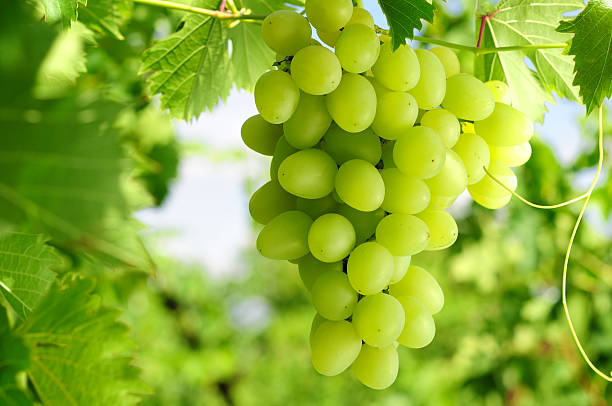Keeping the soil healthy and prosperous in the future is going to be a big challenge in grape farming. In the previous section, we have briefly seen the causes of increasing pH and salinity of the soil and what are the side effects on the grapevine, but the only solution is to increase the organic carbon (organic carbon) of the soil. Organic carbon is very important issue in soil test report, after soil sample is tested organic carbon is classified as follows, 0 to 0.30 - low, 0.30 to 0.50 - medium and 0.50 to 1.0 good, (many agricultural experts and renowned scholars say (If organic kerb around 0.80 is fine)
A few days ago, a Gujarati farmer friend sent a soil sample from his farm directly to a renowned soil laboratory in the US for testing. In that report organic carbon for Indian agriculture was classified as very low below 0.80, moderate from 0.80 to 1.50 and excellent from 1.50 to 3.0. It is surprising and sad that why we do not give so much importance to organic carbon, we know the importance of organic carbon, but this matter is not taken seriously by farmers and agricultural experts, the fertility of the soil is completely dependent on organic carbon. The physical, chemical and biological properties of soil are acquired only by organic matter. Fertility and crop productivity are maintained by increasing soil organic carbon content. Soil is a living medium with physical, chemical and biological properties. Such a land provides proper amount of water and essential nutrients at the right time along with all the vegetation and support, even though we know the importance of organic carbon, but we see a lot of indifference in this matter, in the last three to four years the organic carbon content of many soils in the grape growing sector is below 0.30. (almost 50% of the land) have come, (this is very serious, when defining desert, the experts say that the land with organic carbon below 0.50 percent is called desert?) and our brother viticulturists who are ignorant of this topic are pruned every October. Before , we start working with a new enthusiasm, let's say that this year at least our grapes will be of record quality and record tonnage. Every farmer needs to become agriculturally literate, do whatever it takes to maintain the quality of the soil, because only if the soil is rich, agriculture will survive and thrive. The vitality of the soil depends on the organic carbon of the soil. One of the major causes of organic carbon depletion is the low use of organic inputs in agriculture, destruction of crop residues, frequent use of excess nitrogen fertilizers, unnecessary release of many types of hazardous chemicals into the soil, and water bodies polluted by various chemicals. Curb is decreasing day by day. In order to increase this organic carbon, you have to use regularly well-rotted cow dung, green manure, green manure, bacterial fertilizers in the soil. Crop residues should be recycled and maximum organic matter should be used as a ground cover. If there is a large amount of organic matter in the soil, the number of beneficial bacteria and earthworms will increase in such soil and the soil will remain hollow and porous, the balance of oxygen and water in the soil remains, the roots of the grape vine are very efficient in such soil and the soil with a lot of organic matter is the one on the root of the grape vine. Keeps negative charge and positive charge under its own control, it is only under the control of the fertile land to activate the vines for production at the right time by keeping the load less or more at any time, so in order to maintain sustainable agriculture, the concept of "farming only if the soil is rich" has to be implemented. is
author-
Mr. Subhash Chandra Karale Sir
Director, SV Agro Solutions
